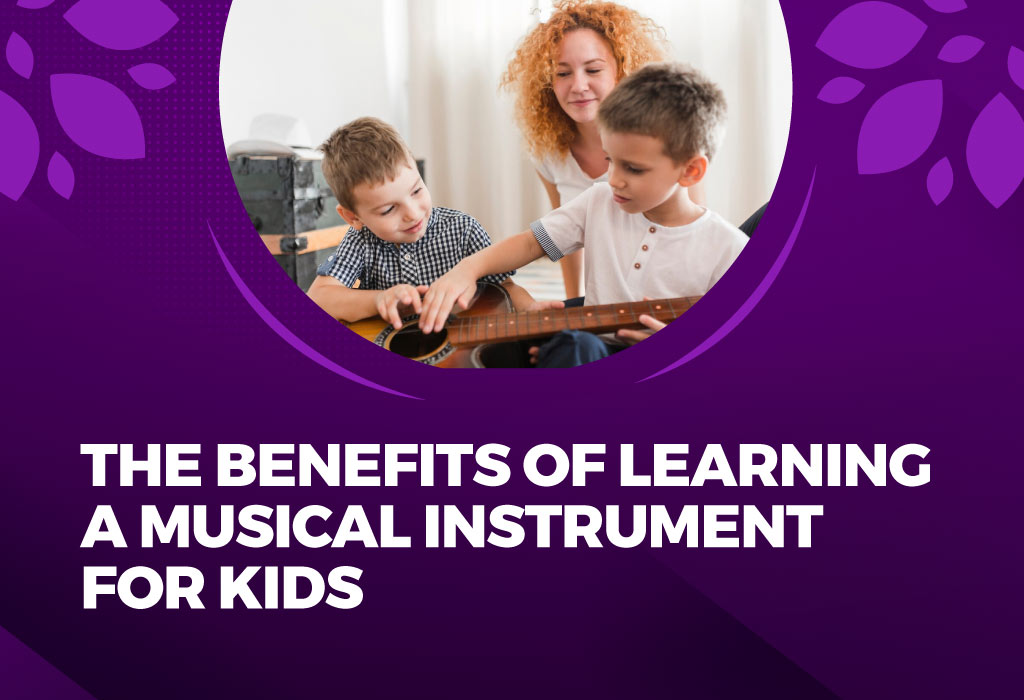The Benefits of Learning a Musical Instrument for Kids

Learning to play an instrument offers innumerable benefits in children other than just playing it. Cognitive and emotional benefits are linked with them. They help in the proper growth of a child right from early childhood with overall well-being. That is why Play Schools in Vedapatti makes it a part of their curriculum as a benefit to the students. Here is an in-depth explanation of the multifaceted benefits that learning a musical instrument has on children.
Cognitive Benefits
Memory and Learning Abilities Enhancement
Learning music requires remembering the notes, rhythms, and lyrics, which aid in memory enhancement. Many children who can play musical instruments have developed verbal memory skills that are highly developed and spatial-temporal skills, quite useful in solving problems and working out mathematics. Several studies have quoted that musical training enhances the ability of the brain to process complex information and, at the same time, enhances academic achievement.
Greater Concentration and Attention
Playing an instrument requires a prolonged period of concentration and attention. The attention to timing, dynamics, and technique can transfer into other areas of a student’s life to develop better concentration and attention span in school and daily life.
Improved Language Abilities
The common neural pathway between music and language shows that learning an instrument can improve a child’s aptitude for processing and understanding language. All the same, learning to read musical notations requires skills similar to reading texts, hence developing better linguistic and literacy skills.
Math Skill Development
Math has its built-in connections to music in rhythm, timing, and patterns. Children are taught musical patterns throughout their musical training, which may allow for mathematical patterning to be reinforced and support stronger problem-solving skills.
Emotional and Psychological Benefits
Increased Self-Esteem and Confidence
As an instrument is learned, it requires practice and dedication. With the progress of the children through an instrument and achieving goals, it develops a sense of accomplishment and self-worth. It boosts confidence and reduces stage fright by performing in front of an audience at a school concert or even a family get-together.
Emotional Expression and Stress Relief
It serves as an emotional outlet by allowing children to express themselves when they cannot do so verbally. Playing the instrument may become a therapy for the child, a way to relax and let it all out. Making music comforts one and can therefore, help children get through rough emotions or situations.
Resilience and Discipline
Learning to play an instrument will have to overcome obstacles and failures. Children work hard, trying as many times as it takes to master the instruments. Working through these difficulties helps you to be resilient and stresses the importance of effort and commitment.
Social Benefits
Improved Social Skills
Music often requires cooperation and interaction, whether in group lessons, band practices, or school performances. The opportunities a child is going to be involved in will allow for the development of teamwork, communication skills, and the ability to work harmoniously with others.
Cultural Awareness and Appreciation
The kind of exposure a child gets to different styles of music and traditions facilitates their understanding of various cultures. This might foster an appreciation for diversity and promote a more inclusive perspective.
Increased Empathy
Group singing develops empathy since children have to listen to and work with their peers, which makes them respect and value different musical contributions.
Long-Term Benefits
Lifelong Skills
It is discipline, focus, and creativity acquired through learning an instrument that leads to successful living throughout life, right from academics and business affairs.
Improved Creativity
Musical education teaches children how to think creatively and solve problems. Children learning to play a musical instrument show an increase in imagination and an out-of-box thinking approach, enabling them to become more creative and address various challenges in life.
Cultural Enrichment
Music will help them to nourish lifelong appreciation of the arts. Their experiences with music as children will be precursors to a greater understanding and appreciation of cultural and artistic expressions that may enrich their lives and broaden perspectives later in life.
Conclusion
Learning to play a musical instrument has several benefits for children in many diversified aspects. The cognitive and emotional development of a person, his social development, and even his physical development—the benefit does not end with playing the instrument. It cultivates skills that are believed to be useful for a child’s all-round development and well-being and hence forms a foundation for a much more enriched and harmonious life. Encouraging children to make music will not only give them immediate joy and fulfillment but also equip them with a lifetime of really useful skills.

